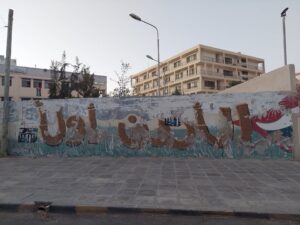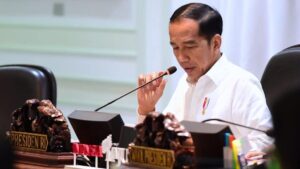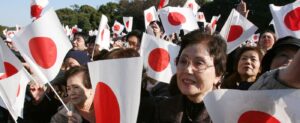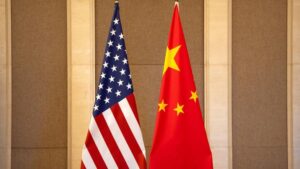Formula 1 and International Relations
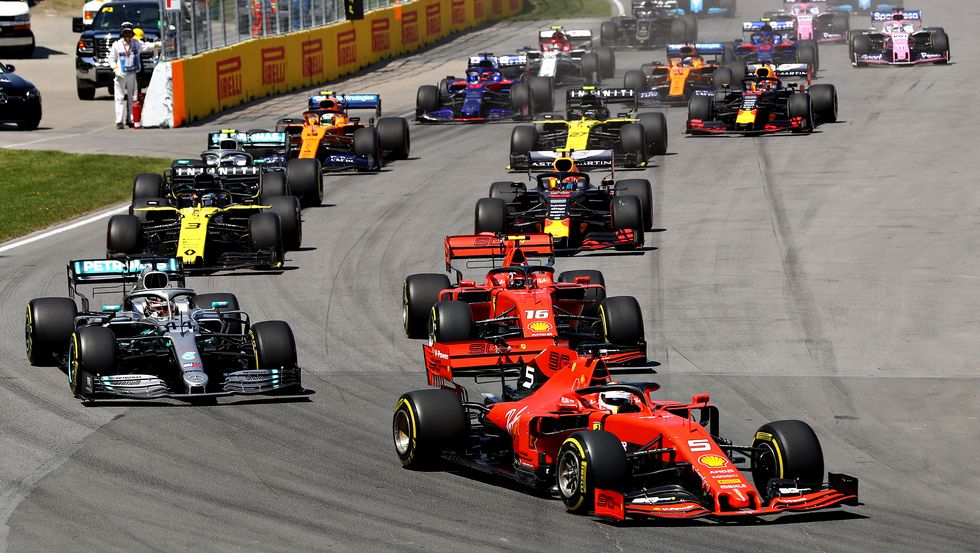
Illustration of Formula 1 racing. Photo: Mark Thompson/Getty Images
As one of the most exciting motorsports, Formula 1 has become something many people look forward to throughout the year. I have never been one to follow sport events, let alone racing/motorsport ones. Sure, I know names like Alonso, Hamilton, and other legends in F1 throughout my life, but nothing could spark my interest further into the sport.
That is, until Netflix launched a documentary series about it.
To be honest, I was a bit embarrassed confessing the fact that I became a F1 fan because of Netflix’s Drive to Survive though my friends told me I shouldn’t feel that way and that it doesn’t matter if I started out late or how I started. Netflix, as per usual, made things a bit dramatic by exaggerating here and there. However, they managed to draw people’s interests into F1 (including me) nonetheless—and they did it in style. Pros and cons about the show would always be here, but that’s not what I am going to talk about today.
Instead, I am going to discuss about F1 and international relations.
As an IR student, everytime we are drawn to a certain topic and want to write something about it, we are trained to ask ourselves the dreadful question of “HI-nya di mana?” or basically, “In what way is this an international relations issue that could influence the dynamics of the global power?”
As much as I want to write a wholesome essay about the brilliance of a certain British young driver in this 2021 season, that would not be classified as an IR paper. So, in order to p̶r̶o̶v̶e̶ ̶m̶y̶ ̶m̶o̶m̶ ̶t̶h̶a̶t̶ ̶m̶y̶ ̶o̶b̶s̶e̶s̶s̶i̶o̶n̶ ̶o̶f̶ ̶F̶1̶ ̶c̶o̶u̶l̶d̶ ̶c̶r̶e̶a̶t̶e̶ ̶s̶o̶m̶e̶t̶h̶i̶n̶g̶ ̶u̶s̶e̶f̶u̶l̶ write something that comes truly out of interest, I tried to explore the link between sports and IR in general as an attempt to find a starting point in writing about F1 and IR.
At first it was hard, but then I found topics around F1 that also touched the high and mighty world of IR, such as: sportwashing, powerful social movements, and of course, soft power in the form of luxurious Grand Prix. Therefore, rather than presenting a thorough analysis regarding F1 and IR, this essay will briefly explain the state-of-the-art of each topic that I have gathered as an entry point for further research.
Bahrain and Human Rights
In IR, sportwashing is a practice of a state who uses sport to fix or improve its reputation either by hosting an international sport event, purchasing or giving sponsorship to a certain sport team, or by participating in the sport itself. In particular, sportwashing has often been used to direct attention away from horrific human rights records. It is not something new as many have shed some light into the examples like Russia when it was hosting the 2018 FIFA World Cup. Many argued that Russia has used the sport event to improve the country’s low reputation due to its foreign policy by redirecting the focus of the discourse to the success of hosting the World Cup and the friendliness of Russian people.
As for F1, the main discussion about sportwashing is currently revolving around Bahrain and the issue of human rights. Bahrain Grand Prix was cancelled in 2011 amid international uproar over the country’s government violence in suppressing Arab Spring pro-democracy movement. Despite that, the Bahrain Grand Prix returned the following year and the years after that.
Now, a decade has passed and yet the human rights situation in the country is not getting better (if not worse). Any practice of democracy has basically been cast aside. It was shown by how the government has banned any opposition political party, forcibly shut down the only independent newspaper, and even taken away the freedom of assembly that includes the protests against the Bahrain Grand Prix over the years.
Recently, a joint letter from various NGOs was sent to Formula 1. The letter is asking for the CEO of Formula 1 Group, Stefano Domenicali, to refrain from ignoring the human rights violations committed by Bahrain. The letter also emphasized their concerns of Bahrain’s use of the Grand Prix to sportwash the poor human rights records, be it about the continued government repression or the many abuses that linked to the 2020 season.
Not only that, it was announced last year that Saudi Arabia will also host a Grand Prix in 2021—despite the country’s human rights concerns. This decision is questionable if we look at how Saudi Arabia was condemned by many countries over serious human rights violations such as the murder of Jamal Khashoggi and other allegations like reports of torture, enforced disappearances, and arbitrary detention.
Just like any other international sports event, I guess F1 is not immune to a country’s practice of sportwashing to help create or fix its bad reputation. And certainly, it is interesting to see how far F1 can be used as a tool by a state.
Hamilton and #BlackLivesMatter
Lewis Hamilton is the most successful F1 driver at the moment and also F1’s only Black star. At the age of 36—and as of now, he has had 98 wins, 100 pole positions, and 171 podium finishes. So, to put it bluntly, yes, he is the most accomplished one.
Despite that, as the only Black driver in the grid, he doesn’t have it all easy.
He experienced racism ever since his early karting days. It didn’t stop even after he achieved so many things in F1 either. It is reported that Hamilton often gets shoutings from people who tell him to “go back to your country!”. There was a case in 2008 when some people in Spain painted their faces black and wore wigs to mock him and his family. Hamilton was taught to do his talking on the track and keep quiet—and so he did.
It all started to change last year.
After the murder of George Floyd, millions of people took the street to support the social movement of #BlackLivesMatter. And amongst them is Lewis Hamilton. A month after the death of Floyd, at the Austrian Grand Prix, he took the knee before the race while wearing Black Lives Matter t-shirt.
Photo: Dan Istitene/Formula 1/Getty Images
This action later led other drivers and the whole Formula 1 to acknowledge and involved more into the cause. They take a stance while wearing “End Racism” t-shirt at every race before it begins and with the initiative of #WeRaceAsOne, F1 tries to tackle social justice issues that include inequality and racism. They also pledged to increase diversity and opportunity in the sport that has been dominated by white people.
While everyone sees this as a good progress, Hamilton is not satisfied just yet. With the spirit of BLM movement, he set up an initiative called The Hamilton Commission to identify the root causes of the lack of diversity in UK motorsport and specifically in F1 too. He is determined to make a change in the sport that made him.
On July 13th, the long process of interviewing more than 100 people—including representatives from F1 teams—and doing thorough research, surveys, and data analysis has finally come to an end with the publication of the first-ever Hamilton Commission Report. The report revealed that only 1% of motorsport engineering jobs are filled by people from Black backgrounds. After addressing its findings, the report gave ten recommendations to F1 and UK motorsport industry in general.
The commission report was accepted by F1 CEO Stefano Domenicali who said that they will “take the time to read and reflect on,”
Last semester, I studied transnational advocacy and social movements and how powerful they can be as an international phenomenon. Learning and observing F1 has made me realize that what Hamilton has done so far could also have a big impact for the BLM movement internationally. Surely, with the report now out in the open, it will be interesting to see and analyze how much positive change it could bring for the movement in the long run.
Rania Shalyssa is an International Relations student at Universitas Indonesia and the Managing Editor of Kontekstual. She can be found on Twitter with the username @raniashall

